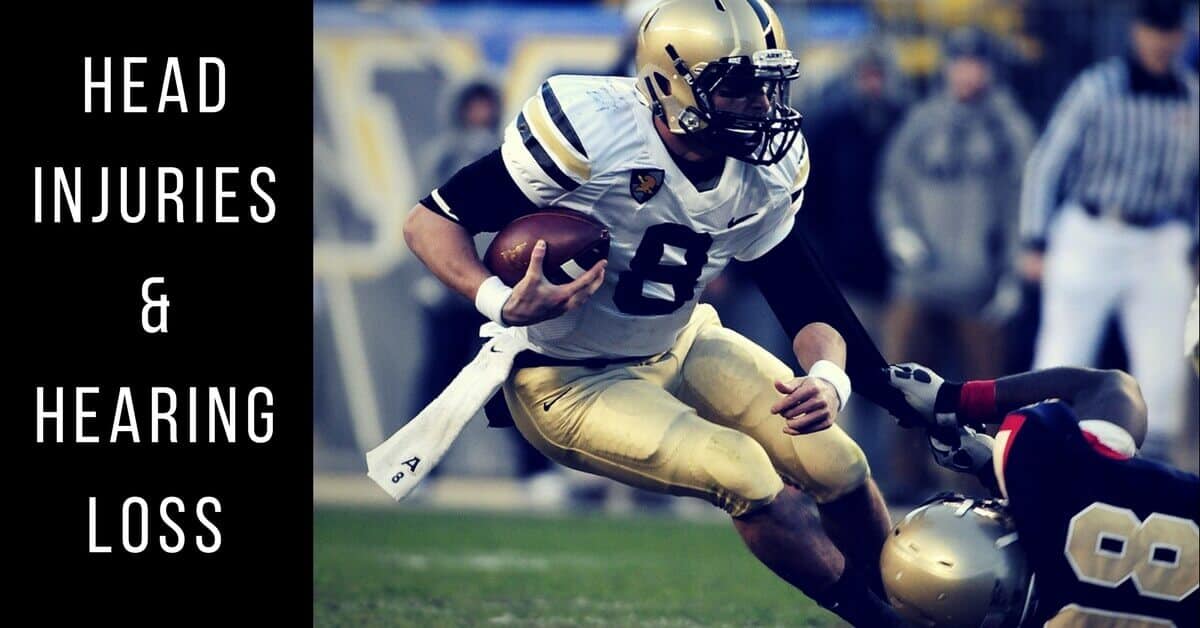
You may think the only factors that lead to hearing loss are noise exposure and aging, but that’s not the case. While these are both causes of hearing loss, your hearing can also be damaged by illness or injury. Head injuries lead to hearing loss more often than you might think.
How Prevalent are Head Injuries?
Did you know that traumatic brain injury is the leading cause of death and disability in America? The Centers for Disease Control report that each year there are up to 3 million head injuries! Over 1 million of these are traumatic brain injuries which lead to hospitalization and further complications. You might not be surprised to learn that the highest numbers of brain injuries are reported in males from 15 to 35 years of age, since this group takes a lot more risks, are more prone to injuries, and have higher rates of participation in contact sports like football.
What is a Head Injury?
The most common traumatic brain injury is a concussion. When something hits the head with a lot of force, it causes the brain to be shaken and come into contact with the inside walls of the skull. The main injury is caused by this shaking, and results in a contusion, or bruising of the brain, and edema, or swelling. In more severe cases, the brain can start to bleed, or hemorrhage. Head injuries are most commonly caused by contact sports, car accidents, and explosions. Severe head injuries will often result in death, but even a mild concussion can be a major cause for concern.
Consequences of a head injury can range from motor function impairments like problems with coordination and balance, to insomnia and cognitive impairments such as struggling with memory, decision making, reading and writing, altered speech, and impaired judgment. Friends and family of those who’ve experienced a head injury report changes in behavior and personality, like poor coping skills, anger management issues, anxiety, mood swings, or depression. Friendships and family relations are affected, often leading to social isolation. Senses are also affected, and those with head injuries report loss of taste, problems with vision and smell, and hearing loss.
Sports-Related Injuries
Contact sports, particularly football, has been taking a lot of heat recently over the number of players that sustain head injuries. As we learn more about concussions and other head injuries and are realizing some of the long-term implications of these traumatic brain injuries, doctors are joining mothers in calling for players and coaches to exercise more caution. Particularly for players who have had a head injury in the past, the health risks for further injuries are dire, and chronic brain damage can even lead to death.
Head Injuries & Hearing Loss
Head injuries often, whether mild concussions or traumatic brain injuries, can cause damage to the ear, or to the parts of the brain that process sound. The ear drum could rupture, the inner ear may be damaged, or the auditory pathway that carries signals from the ear to the brain can be disrupted. If you’ve recently suffered a head injury, and you’re having difficulty hearing in noise, following conversations, or locating sounds, your head injury probably affected your hearing. Another sign of hearing damage is tinnitus, or that ringing or buzzing you hear, even if the room is silent. Around half of those who suffer a head injury will also experience a feeling of vertigo or imbalance, which is a sure sign that your ears have been affected by the head injury.
Treating Hearing Loss
Hearing loss, especially when caused by an injury, needs to be treated as soon as possible. To help you hear in the short term, try to reduce background noises, and eliminate distractions. Ask your family and friends to face you directly when speaking, so you can concentrate on what they’re saying, and pick up on visual as well as auditory cues.
If your hearing loss continues,visit us at the nearest My Hearing Centers location for a full hearing assessment, where we’ll measure your hearing loss, talk about your medical history, and suggest the best treatment options for your hearing loss.
